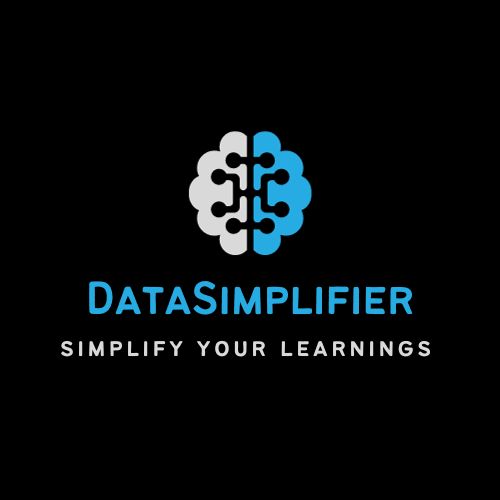So, you’re planning to learn SQL for data engineering but not getting the perfect resources? If you’re interested in becoming a data engineer, learning SQL is essential. But where do you start? This blog post will provide you with a comprehensive roadmap for learning SQL for data engineering.

First of all, you’ve just made a fantastic decision! With the immense mount of data generated, the requirement of data engineers have been increase widely. SQL is your magic wand for data engineers, and for good reason. It help them understanding relational databases, which are used to store and manage structured data. Data engineers utilize SQL language to build and maintain data pipelines, convert data, and load it into data warehouses or data lakes.
Why SQL for Data Engineering?
SQL (Structured Query Language) is like the glue that holds all the pieces of data world together. Here’s why you need to make it your best friend:
- Data Wizardry: With SQL, you can extract, twist, and turn data in databases, getting it ready for analysis and further decision-making.
- Big Data Tamer: In the age of Big Data, SQL equips you to tackle massive datasets efficiently with the help of queries .
- Collaboration Made Easy: Whether you are planning to become a data analyst or data scientist or data engineer, learning SQL is quite essential. SQL is the universal language spoken by data engineers, analysts, and scientists, making teamwork a breeze.
- Career Boost: Mastering SQL for data engineering can open doors to other exciting job opportunities in data field.
SQL for Data Engineering Complete Roadmap
The following roadmap outlines the essential SQL skills that data engineers need to know:
- Core SQL [The Essentials] : Start with the core SQL concepts to make your foundation stronger. This includes the basic SQL concepts, such as SELECT, INSERT, UPDATE, and DELETE statements. Dive into SQL syntax, data types, and the basics of crafting queries. Become a pro with SELECT statements: filter, sort, and aggregate data with practice. It also includes more advanced concepts, such as joins, subqueries, and window functions.
- Data Warehousing: Data engineers use SQL to design, build, and maintain data warehouses. Learn to create databases, tables, understand relationships, load data, and writing queries to extract insights. Get your hands dirty with data transformations and cleansing. Get the lowdown on database design, indexing, and optimization for peak performance.
- Data Pipelines: SQL for Data Engineering mostly include building and maintaining data pipelines. This includes extracting data from source systems, transforming it, and loading it into target systems.
- Big Data: Data engineers use SQL to work with big data ecosystems, such as Hadoop and Spark. Get yourself acquainted with distributed databases and cloud-based solutions to work with large datasets.
- Advanced SQL & Database Management Concepts: Venture into the world of subqueries, joins, and unions for complex data extraction. Try your hand at creating stored procedures and user-defined functions. Get the lowdown on database design, indexing, and optimization for peak performance. Try your hand at creating stored procedures and user-defined functions. Learn how to work with multiple database systems because variety is the spice of a data engineer’s life!
5 Free Courses to learn SQL for Data Engineering
Here are five free SQL courses that you can take to get started:
- SQL for Data Analysis (Udacity)
- Intro to Relational Databases (Udacity)
- Microsoft Azure Databricks for Data Engineering (Udemy)
- SQL for Data Analysis: Solving real-world problems with data
- Khan Academy offers a delightful, beginner-friendly course to learn SQL in easy way.
Bonus course: Learn SQL – This website provides access to both Free & Paid Premium courses to learn & practice SQL skils.
These courses cover a wide range of SQL topics, from the basics to more advanced concepts. They also include hands-on exercises so that you can practice your SQL skills.
Tips for Learning SQL
Here are a few tips for learning SQL:
- Understand Core Concepts: Make sure you have a good understanding of the core SQL concepts like SELECT, FROM, ORDER BY, GROUP BY, JOIN, etc. before moving on to more advanced & expert-level topics.
- Practice regularly: The best way to understand SQL is by practicing it frequently. Try to set aside some time each day dedicated for working on SQL exercises.
- Use a database sandbox: A database sandbox is a great way to practice SQL without having to worry about messing up your production data.
- Find a mentor: If you’re struggling with a particular SQL concept, find a mentor/ expert in this field who can guide you. There are many online and offline communities for data engineering where you can find experts.
You can refer this blog for more tips on learning SQL.
Conclusion
Alright, adventurer! You’ve got the roadmap, and you’ve got these incredible free courses. It’s time to set sail on your SQL data engineering voyage. Follow the roadmap, sign up for the courses, and let the learning begin. Remember, data transformation starts with you, one SQL query at a time.
Join our merry band of data enthusiasts, share your progress, and stay updated with the latest data engineering trends. The data world is waiting for you, and the adventure begins now!
Learning SQL is an essential skill for data engineers. By following the roadmap and tips above, you can learn SQL and start your career as a data engineer.
Hope it helps 🙂
Share the post with your friends
